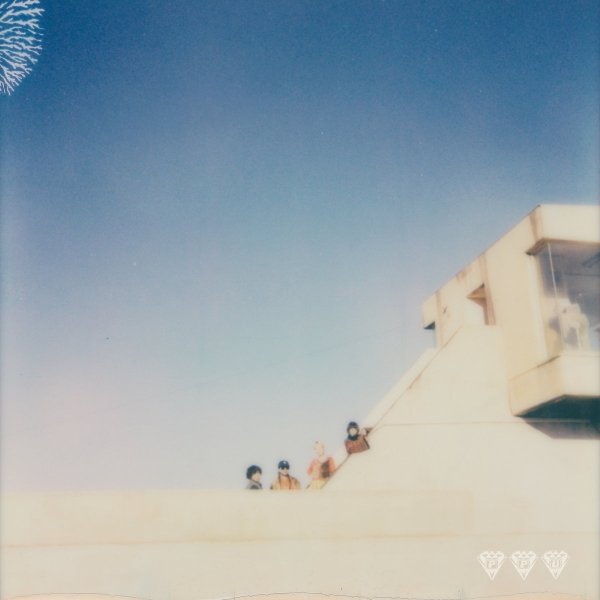TAMTAM - Where They Dwell
“Where They Dwell” is TAMTAM’s first new album in five years, and further solidifies its evolution from its roots as a reggae/dub band into an experimental fusion band, combining elements of jazz, soul, new-age music, and exotica in a contemplative observation of the things in our world, both real and imagined.
Where “modernluv” was a description of love in 2018 and “We Are The Sun!” was partly a reaction to the human struggle post COVID in 2020, TAMTAM’s newer works have left behind the trials and tribulations of society. It’s almost as if the band has reached a form of enlightenment, no longer concerned with concrete messages or traditional song structure. This gives them the freedom to look beyond genres, their preceding musical style, and even fans’ expectations.
In the five years that have passed, they’ve traveled both personally and professionally to places such as the U.S., Canada, Korea, Australia, Northern Japan, and Okinawa. Inspired by their travels, the album centers on the theme of inhabitants, ranging from plants and animals to inanimate objects and imaginary creatures (hence the title “Where They Dwell”). It’s more mystic and magical than religious, more Spirited Away than Seven Swans. They’re looking for the magic in the world around us, and showing it to us through music.
The album opens with “Magic Hour”, that precious time of the day, early in the morning and evening, where light has the power to create magic. You can still hear traces of the old TAMTAM — heavy reverb, delayed drums, steel pan like it’s a dub track, but these days Kuro’s voice is obscured by effects so that it becomes basically another texture. The lyrics are sparse and cryptic, something like “happiness may slip in and out of view, but the moment you recognise it you no longer understand what it is”. They might as well be describing their current sound, in that there’s no easy way to categorize or identify their music now.
So instead of relationships and society, we now get songs about dragons, rocks, and turtles. On “Dragon in the Lagoon”, they catch a glimpse of a dragon flying through the clouds and over the hills. But they are passive observers, even if they want the dragon to show them where to go, they are content to just watch it fly by as the sun sets. Despite its mythical status, there’s no alarm, no grand statement, it’s just a gentle acknowledgement of its existence. Similarly, “Just Being Alone” is an observation of a black rock off the coast of Aka Island, in Okinawa. It’s framed like a Zen koan, before it was ever discovered, was it always there? And then where did it come from? This song was definitely one from the travel book, as you can hear the recorded lapping of the waves at the beginning and their footsteps on the beach at the end. The melody and singing style even feel like they are influenced by Okinawan folk music.
Whether it’s the mythical Fusang Tree of Chinese folklore or the Gold Tortoise, in selecting the subjects for the songs, TAMTAM reveals another theme for the album, which is longevity and eternity. These things were here before us, and they will remain long after we are gone. You might miss them as you go about your daily life or be unfamiliar with their presence, but they’re there. It gives the music an extra sense of scale, but leaves it up to you to interpret. Maybe it makes you wonder what your place is in this universe, or maybe you sense that our time here is merely a blink of an eye. In addition, it is no surprise that water is TAMTAM’s element, coming up in at least half of the songs. Subtly, they’ve depicted the whole cycle of water, from the Seven Seas, to Summoning Rain, the uptake from the roots to the leaves of trees, and the dew forming in the night. It reflects the cycle of life, death and rebirth throughout the passage of time. Again, it's something beyond us that continues whether we exist or not.
The album closes with “Kitakami” and its outro, and it’s a fitting end to the album. Inspired by Kuro’s journey into the mountains of Northern Japan, sonically it’s closer to TAMTAM’s original sound, with a strong walking bass and swaying dub rhythm, and the song could easily have fit in on “We Are The Sun!” However, it’s paired here with an outro that shows where the band is headed. There’s this feeling of returning home, to where they dwell, but also a feeling of rising up into the sky. It’s almost like a musical ascent into the heavens, reflecting the band’s continued evolution and perhaps a step closer to enlightenment. It could be a sign of spiritual maturity or acceptance of the world as is, but TAMTAM are approaching a musical nirvana, and it’s a wonder to behold.
More from TAMTAM: modernluv (2018), We Are The Sun! (2020)
Tokyo ON also recommends: KURO - Just Saying Hi
